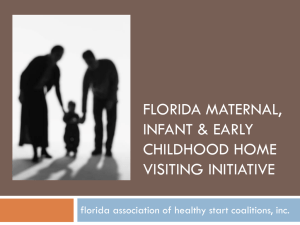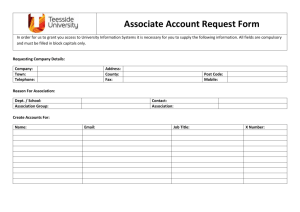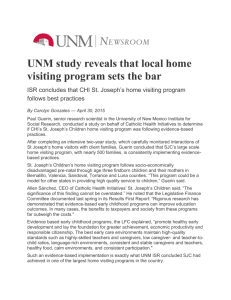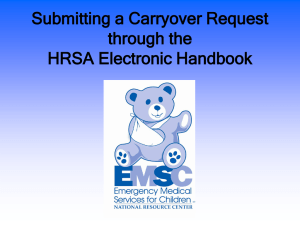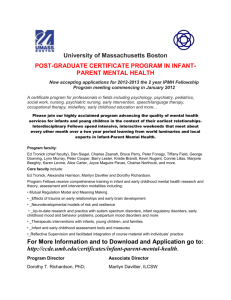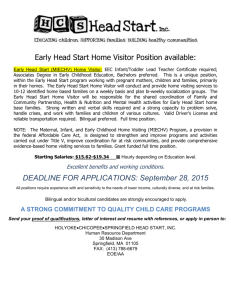HRSA and ACF Early Childhood Home Visiting Program
advertisement
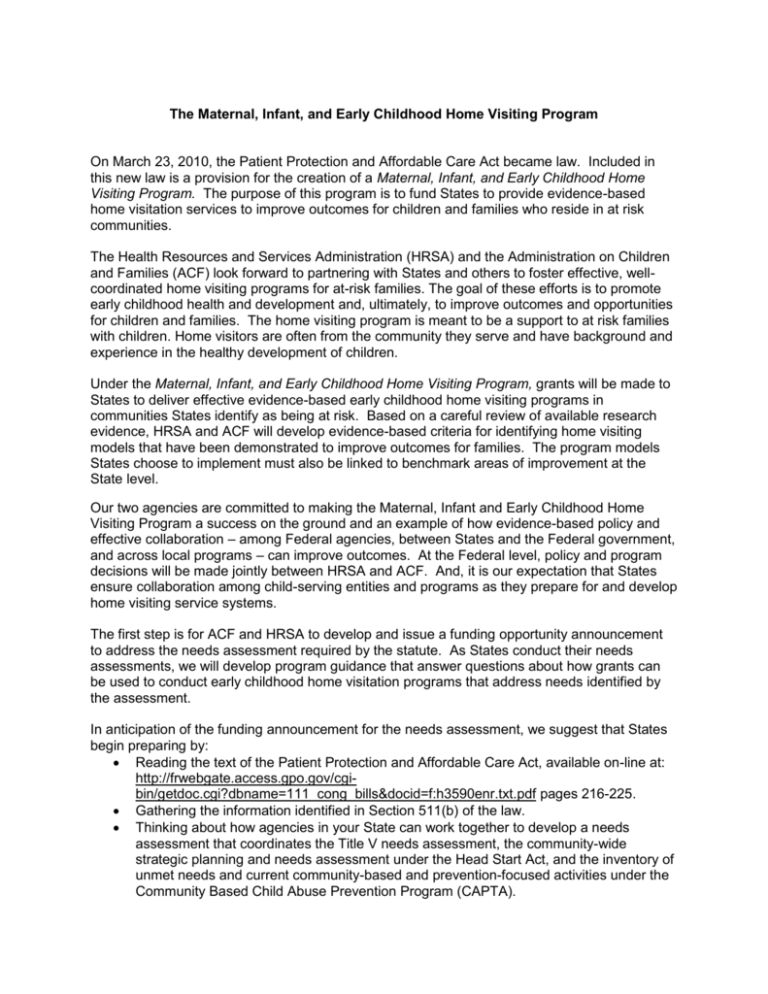
The Maternal, Infant, and Early Childhood Home Visiting Program On March 23, 2010, the Patient Protection and Affordable Care Act became law. Included in this new law is a provision for the creation of a Maternal, Infant, and Early Childhood Home Visiting Program. The purpose of this program is to fund States to provide evidence-based home visitation services to improve outcomes for children and families who reside in at risk communities. The Health Resources and Services Administration (HRSA) and the Administration on Children and Families (ACF) look forward to partnering with States and others to foster effective, wellcoordinated home visiting programs for at-risk families. The goal of these efforts is to promote early childhood health and development and, ultimately, to improve outcomes and opportunities for children and families. The home visiting program is meant to be a support to at risk families with children. Home visitors are often from the community they serve and have background and experience in the healthy development of children. Under the Maternal, Infant, and Early Childhood Home Visiting Program, grants will be made to States to deliver effective evidence-based early childhood home visiting programs in communities States identify as being at risk. Based on a careful review of available research evidence, HRSA and ACF will develop evidence-based criteria for identifying home visiting models that have been demonstrated to improve outcomes for families. The program models States choose to implement must also be linked to benchmark areas of improvement at the State level. Our two agencies are committed to making the Maternal, Infant and Early Childhood Home Visiting Program a success on the ground and an example of how evidence-based policy and effective collaboration – among Federal agencies, between States and the Federal government, and across local programs – can improve outcomes. At the Federal level, policy and program decisions will be made jointly between HRSA and ACF. And, it is our expectation that States ensure collaboration among child-serving entities and programs as they prepare for and develop home visiting service systems. The first step is for ACF and HRSA to develop and issue a funding opportunity announcement to address the needs assessment required by the statute. As States conduct their needs assessments, we will develop program guidance that answer questions about how grants can be used to conduct early childhood home visitation programs that address needs identified by the assessment. In anticipation of the funding announcement for the needs assessment, we suggest that States begin preparing by: Reading the text of the Patient Protection and Affordable Care Act, available on-line at: http://frwebgate.access.gpo.gov/cgibin/getdoc.cgi?dbname=111_cong_bills&docid=f:h3590enr.txt.pdf pages 216-225. Gathering the information identified in Section 511(b) of the law. Thinking about how agencies in your State can work together to develop a needs assessment that coordinates the Title V needs assessment, the community-wide strategic planning and needs assessment under the Head Start Act, and the inventory of unmet needs and current community-based and prevention-focused activities under the Community Based Child Abuse Prevention Program (CAPTA). HRSA and ACF are aware that States must successfully complete a home visiting needs assessment in order to receive funding in FY 2011 through the Maternal and Child Health Block Grant. We will work closely with States and jurisdictions to assure that the needs assessment meets the timeline listed in the legislation. We are committed to informing all stakeholders and the public about decisions being made and, as appropriate, options being considered. We believe that for this program to be effective, we must be partners with States, home visitation program developers, consumers and other stakeholders. If you have ideas concerning implementation of this important new program, we would like to hear them. Please send your comments to Audrey Yowell in HRSA at ayowell@hrsa.gov and Moushumi Beltangady in ACF at moushumi.beltangady@acf.hhs.gov.

